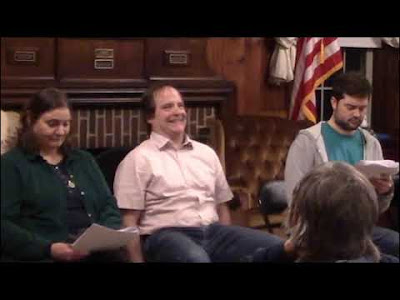Treading the Uneven Road by L.M.
Brown Fomite Publishing, 2019, 190 pages, $15.
Book Review
“Follow your most intense
obsessions mercilessly,” Kafka said. L.M. Brown is obsessed with
the people in a small Irish town in the 80s and 90s. This is her
second book, an interconnected collection of short stories that reads
like a novel. Brown, who grew up in Ireland, writes with a sure hand
the stories of men and women who have dreams and longings, who fall
in and out of love with each other, and who harbor secrets that shape
their lives. The Irish are known for oppression and suppression and
it is the latter that Brown explores.
In our ever-changing multi-media
world, our culture offers us many entertainment options. Fiction,
with its limitation of words on the page, still manages to captivate
us with the writer’s ability to create character in a way that
cannot be duplicated in film or television. Brown is particularly
adept at bringing a small community of characters to life. She also
works within the confines of short stories to keep coming back to
aspects of related tales from the point of view of different
characters. So, a minor character in one story will be the main
character in another. Although Treading the Uneven Road is a
collection of stories, because they are all related, the reader comes
away with a satisfying feeling that usually only occurs in reading
novels. In this sense and in its obsession with the Irish and the
complex relationships in their families, she reminds me of Colm
Toibin in his great collection Mothers and Sons.
The uneven road (from a line by
Yeats) refers to the emotional ups and downs of the characters as
they travel along the road of life. In one story a young wife,
estranged from her husband, slowly discovers that he is not the
person she thought he was. In another, two brothers who dream of
going to London to create a business together, are separated when
family illness keeps one brother home. Like Jimmy Stewart in It’s
a Wonderful Life, complications ensue and the story leads to
unexpected twists and turns. Unlike the Frank Capra movie, these
stories are often heartbreaking, yet the characters persist. The
Irish, as Tom Wolfe liked to say in Bonfire of the Vanities,
are a stubborn lot. We don’t give up. Eventually, in these stories,
secrets are divulged and characters make amends or come to understand
why their friends and lovers acted the way they did.
Brown is also not afraid to tackle
the stories that perplex us in our lives. Why does a mother leave her
family? Why is a teacher cruel to children and can she be forgiven by
a child with whom she was cruel? Why would someone leave her best
friend to go and live with an older man who seems completely wrong
for her? Why would someone choose to live alone in a strange town?
Some of the difficulties faced by
the characters have to do with the way their culture is changing.
Young people moving away from their friends and families, a father
who has a hard time dealing with a gay son, a teacher who assumes a
student with a learning disability is stupid. All of the characters
are sympathetic and the secrets in the stories function like
mysteries. In addition, the way the author keeps returning to
characters reflects back on earlier stories in the book. It’s all
written in strong, clean prose.
Today, it sometimes seems as if
people are living their lives on their phones and in front of screens
and what’s in between takes the form of pauses when we actually
talk to people or take a walk in the woods or put down our phone and
pick up a fork. In gyms and department stores and even gas stations,
televisions draw our attention. People seem to be waking slowly up to
the notion that this media onslaught is both addictive and unhealthy.
One way out of this is through focusing on art, poetry, theatre, and
fiction. In Treading the Uneven Road, L.M. Brown brings us on
a welcome journey to an imaginative village in Ireland and introduces
us to characters who, like us, follow an uneven road of discovery and
understanding.







































